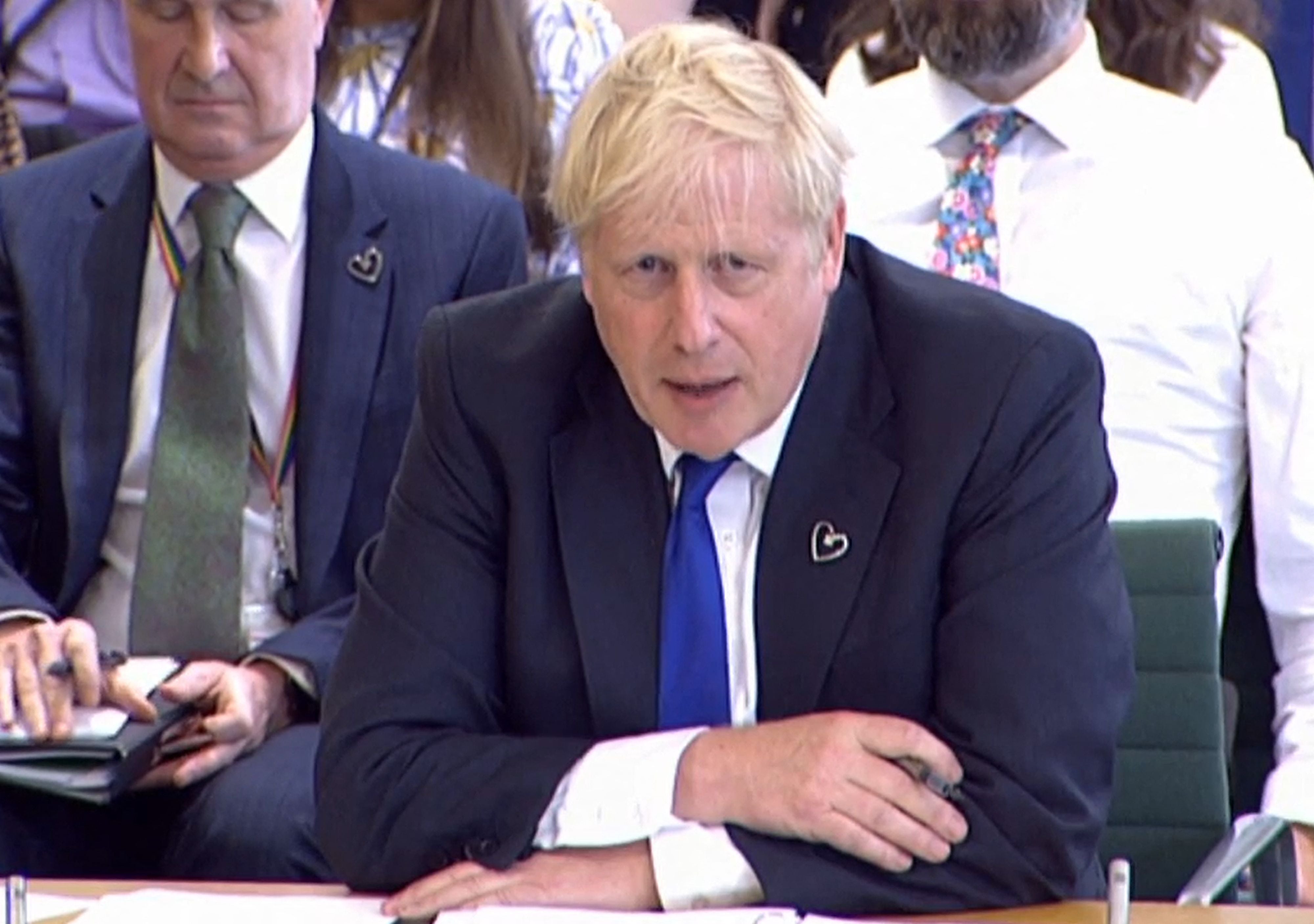‘Dear God, let it end’: Inside Boris Johnson’s day of denial as No 10 staff despair
Analysis: As his political world crumbled, Downing Street insiders told how the prime minister seemed lost in denial


Your support helps us to tell the story
From reproductive rights to climate change to Big Tech, The Independent is on the ground when the story is developing. Whether it's investigating the financials of Elon Musk's pro-Trump PAC or producing our latest documentary, 'The A Word', which shines a light on the American women fighting for reproductive rights, we know how important it is to parse out the facts from the messaging.
At such a critical moment in US history, we need reporters on the ground. Your donation allows us to keep sending journalists to speak to both sides of the story.
The Independent is trusted by Americans across the entire political spectrum. And unlike many other quality news outlets, we choose not to lock Americans out of our reporting and analysis with paywalls. We believe quality journalism should be available to everyone, paid for by those who can afford it.
Your support makes all the difference.It was always going to be an intense day in Westminster, with Boris Johnson’s leadership hanging by a thread. But the extraordinary sight of a prime minister brushing aside a grilling in a Commons’ committee room as his own cabinet waited nearby to urge him to resign led observers to call it his “day of delusion”.
The summer morning started muggy and grey at Downing Street. By 8.30am, staffers arriving by bike and foot tried hard not to creep into the shot of the waiting cameras.
Once again, the PM’s political survival was hanging in the balance. Asked to say if the government would survive the week, one serving cabinet minister gave a short one-word reply on Tuesday night: “shaky”. Asked again on Wednesday morning and “shakier” was the response.
Still, throughout the day Mr Johnson seemed determined – and grimly so – that all was well. “He is in complete denial,” one No 10 insider said. “He’s bullish one minute and then every so often petulant if you have to give him bad news, and there’s been a lot of bad news.”
A second source said if they heard “get on with the job” from the PM one more time, they’d “get a new wine fridge” within Downing Street.
That fragility became clear, and quickly. Newly minted chancellor, Nadhim Zahawi, had to struggle through interviews routinely interrupted by the resignation of government ministers.
Will Quince MP, one such minister who had been dispatched to defend the prime minister with a line that was found to be “inaccurate”, was among those who quit first thing, saying he had been left with “no choice”.
As the second day of crisis unfolded, news channels had been planning their coverage through the night and journalists and producers were being sent off to sleep for a few hours at a time. Among the pack outside one of the most famous doors in the world there was a clear consensus: the day would be long. They were right.
If Sajid Javid and Rishi Sunak’s double resignation opened a wound in Mr Johnson’s premiership, others ensured it would not be cauterised with a reshuffle. From ministers to parliamentary private secretaries (PPS) – aides to ministers – blood kept flowing throughout the day.
The schedule was a rough one for any prime minister, even at the height of their powers, with Prime Minister’s Questions (PMQs) followed by an interrogation from MPs on the liaison committee.
As open letters of no confidence started to confetti their way through social media amid the resignations, the atmosphere before the prime minister arrived at the dispatch box in the Commons was grim.
With a rejigged frontbench behind him, Mr Johnson insisted the “job” of a prime minister with a large Commons majority “is to keep going and that is what I am going to do”.
Even some of the remaining cabinet big hitters weren’t sitting behind the prime minister and the Tories, not shy of a shout, wave or heckle, were largely moribund. Labour leader, Sir Keir Starmer landed a verbal blow calling the reshuffled frontbench “the charge of the lightweight brigade”. Even senior Tories had to stifle a chuckle.
But nothing stings quite so much as friendly fire. A damning resignation speech from Mr Javid came hard on the heels of PMQs and he did not go gently: “This week again, we have reason to question the truth and integrity of what we’ve all been told.”
The line came after a litany of scandals that have dogged Mr Johnson’s premiership in recent months.
And, bit by bit, accounts of Michael Gove, a central figure in so many Tory leadership fights, telling the PM it was time to quit started to trickle out.
At 3pm an exasperated senior Downing Street source said: “Dear God, let it end.”
As the day wore on, onlookers, journalists, police and protesters started to crowd outside the famous street.
It was almost a month to the day that Mr Johnson had survived, not entirely unscathed, a vote of no confidence from his parliamentary party triggered by letters submitted to the powerful backbench 1922 Committee.
But this time, a plot among cabinet ministers to tell Mr Johnson to go became increasingly public. One cabinet minister texted The Independent to say they would be joining a clutch of figures including transport secretary Grant Shapps and Wales secretary Simon Hart to call for the PM to stand aside.
Tears started to flow among some Downing Street staffers as cabinet members arrived.
Meanwhile, an apparently oblivious Mr Johnson told MPs at the liaison committee hearing: “I think the country’s going through tough times.”
“I cannot for the life of me see how it is responsible to walk away from that.”
Insisting he was having a “terrific” week, he refused to be drawn on reports of a delegation awaiting his return at No 10 to encourage him to resign.
One option to unseat him, the 1922 Committee, held off on a rule change to allow a fresh no-confidence vote. They hoped the cabinet would finish off Mr Johnson’s premiership. At 7pm, the black door was still shut. There was no lectern ready to receive a resignation speech and the fray inside Downing Street carried on.
Even home secretary Priti Patel’s warning that his “time was up” went unheeded as Mr Johnson continued to emphasise the importance of the huge mandate he had won at the last general election in his talks with cabinet ministers, one said.
Little more than an hour later, he had made it abundantly clear that he had no intention to go, and certainly not without a fight.
Join our commenting forum
Join thought-provoking conversations, follow other Independent readers and see their replies
Comments